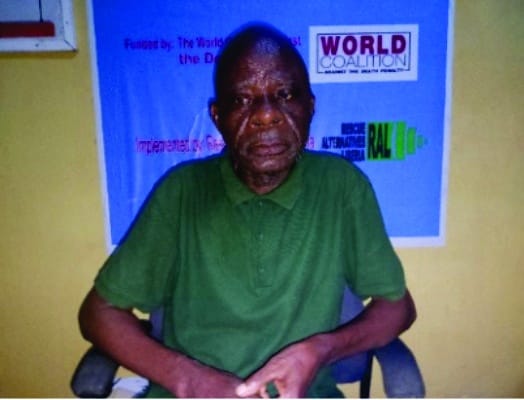Rescue Alternatives Liberia (RAL) 2024 Human Rights Situation Report (HRSR) released on Tuesday December 31, 2024, highlights a troubling year in Liberia marked by widespread violence, unhealthy prison facilities, mysterious deaths, gender and sexual violence, protests, corruption among others.
RAL annual HRSR informs citizens, key stakeholders including the Liberian Government, international partners, and the general public about the human rights situations in Liberia.
Releasing the report, the National Program Coordinator of RAL, Mr. Sam M. Nimely said his organization gathered information on human rights issues through community visits, monitoring of prisons and detention centers, print and electronic media. Additionally, he says RAL followed up on media reports to verify their accuracy.
Another concern highlighted in the report was the lack of political will by the National Legislature to fulfill its regional and international treaty obligations by domesticating these treaties into national law.
Mr. Nimely said “To draw the attention of the government and relevant institutions, RAL shared the report with major stakeholders, including security institutions, diplomatic missions in Monrovia, and international partners, in order to inform them of the past human rights situations in the country, and encourage them to take corrective measures.”
Detention centers: The report notes a significant lack of recreational facilities, medical services for ill detainees/prisoners. Feeding was a challenge as family members usually carried food from homes to their relatives and loved ones. Prison overcrowding with pre-trial detainees topping the list in all the prisons, lack of water for detainees/prisoners to have a bath, poor sanitation in all prisons and detention centers visited.
The report further said almost all the cells in the Monrovia Central Prison were leaking during the rainy season making it difficult for inmates to sleep.
Torture/Harmful traditional Practices:
It said some of the harmful traditional practices were only suspended in some areas by the National Traditional Council of Chiefs and Elders, but were still practiced in many quarters. These harmful traditional practices included early and forced marriage, Female Genital Mutilation (FGM)) and the use of ordeal. Trial by ordeal (sassywood) is a crime under Liberia’s law in section 14.23 of the penal law.
Rule of Law/Access to Justice:
RAL identified some of the serious human rights issues that engulfed the justice system as overcrowding of court dockets with cases, and unethical behaviors of judicial officers.
Visit to police stations and communities:
The report also said all holding cells of the Liberia Drug Enforcement Agency (LDEA) were in deplorable conditions. It said in some holding cells, detainees were seen taken outside for the use of public toilets in handcuffs; while in other cells buckets were placed in the cells with them, causing pollution and sickness.
Security Brutalities:
During the year under review, RAL reported that officers of the Liberia National Police were engaged in unethical and unprofessional attitudes which led to injuries and deaths of many persons. It reported that the police unnecessarily discharged firearms at protest scenes, and also during the enforcement of law and order.
Mob Violence/Justice:
Mob violence was on the increase as a result of lack of trust in the criminal justice system by the citizens. This action led to injuries and deaths.
Rape:
The group observed that despite the enforcement of the rape laws in the country, rape was on the increase as young girls and women were victims, which was mostly perpetuated by older men and state officials.
The government limited compliance to regional & international treaties:
It documented the lack of political will by the Government of Liberia, especially the Legislature to domesticate or ratify signed regional and international human rights treaties including, the African Charter on Human and People’s Rights; and the Universal Periodic Review Recommendations among others.
Meanwhile, RAL recommended to government and partners that, “Law enforcement officers be paid attractive salaries and incentives and be provided with more logistics for smooth operations; that more engagements with citizens and criminal justice actors be carried out by the Ministry of Justice and/or civil society actors for the protection of lives and properties and human rights.
The group also proposed that the Bureau of Correction and Rehabilitation be given autonomous status to better the conditions of prisons and detainees; and that the government legally punish officers who compromise issue of narcotic drugs in the country while the Legislature passes legislation to criminalize the use of ordeal which is a form of torture and as well honor its regional and international obligations by criminalizing torture and abolishing death penalty in the country.”
RAL is a criminal justice system reform; death penalty abolition, and anti-torture advocacy group with membership of several national, regional, and international coalitions/networks, including Transitional Justice Working Group, West African Human Rights Defenders Networks, Pan African Human Rights Defender Networks, The World Coalition Against the Death Penalty, and International Rehabilitation Council for Torture Victims (IRCT).

